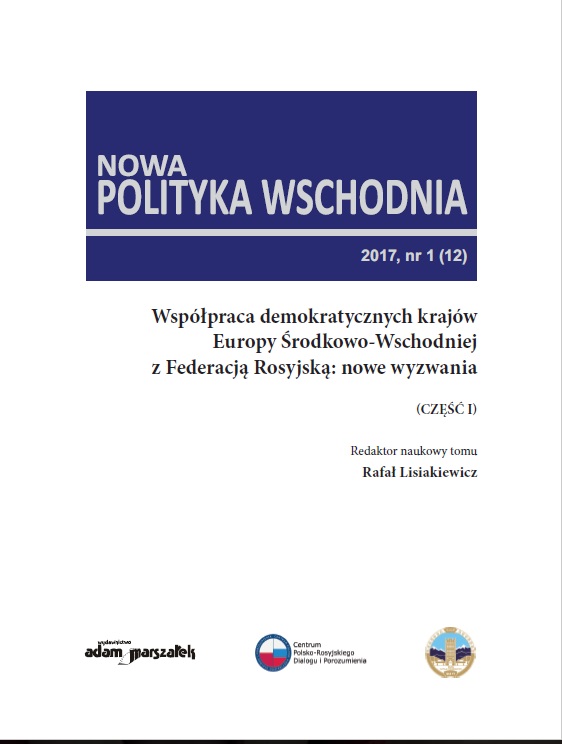Problem autonomii regionów Rosji w sferze aktywności międzynarodowej na przykładzie rosyjskiego Dalekiego Wschodu
The problem of Russia’s regions autonomy in the sphere of international activity – On the example of the Russian Far East
Author(s): Małgorzata PietrasiakSubject(s): Economic policy, International relations/trade, Developing nations, Geopolitics
Published by: Wydawnictwo Adam Marszałek
Keywords: paradiplomacy;the Russian Far East;region of East Asia;institutional conditions of the international activity of Russia regions
Summary/Abstract: Modern states use any means necessary that are provided by foreign policy. At this point, states more often use new means to implement foreign policy – there are, in a broad sense, soft power policies – public diplomacy and promotion of state’s international interests. While tasks of traditional diplomacy that are con-nected with state’s political security and military security have to be implemented by state’s central organs, however, all the rest can be and are implemented by de-centralized self-government authorities. These new forms of diplomatic activity developed, especially, after the Cold War ended and can be classified as paradi-plomacy i.e. the involvement of sub-national actors (regions) of the national states in international relations. Russian regions, including the Russian Far East, estab-lish these forms of activity. However, legal conditions are quite alike, the practice between regions differs from each other. The general conclusion, which emerges from the analysis, points to the fact that many decisions concerning paradiplo-macy are made by federal authorities and the level of regional authorities’ activity in new millennium has decreased comparing to the 1990s. This conclusion also concerns the Russian Far EastThe external surroundings of the Russian Far East – Asia-Pacific region is ex-tremely active international actor. Russia looks with more concerns on the region and sees itself a strategic approach for further international activities. This ap-proach is also important due to the Russian Far East international activity, how-ever, any attempt at adding this region to East Asia integration concepts is inef-ficient. Problem is noted and the goal of Ministry of Foreign Policy of Russian Federation is to incorporate regional diplomacy to traditional diplomacy. In ac-tivity of regions is still ample potential, which is clearly noticeable. In 2013, the 5th program – The Far East and Trans-Baikal Socio-Economic Development Strat-egy to 2025 was adopted. However, there is a concern that this program may suffer the same fate as other unrealized programs to exploit potential and development of this region, if a few requirements, which are listed in paradiplomacy theoretical models, are not accomplished e.g. the strengthen of regional authorities.They are better in defining its needs and opportunities but they should effi-ciently cooperate with inhabitants living in these regions. However, the require-ments are greater influence on their choice, greater trust and identifying with ac-tivities of authority
Journal: Nowa Polityka Wschodnia
- Issue Year: 12/2017
- Issue No: 1
- Page Range: 92-108
- Page Count: 17
- Language: Polish

